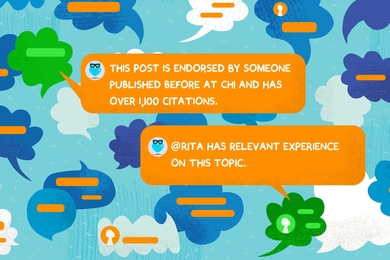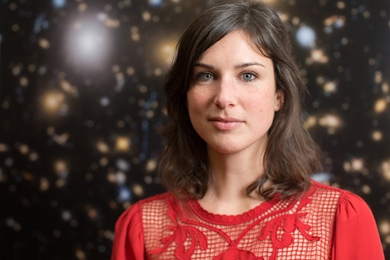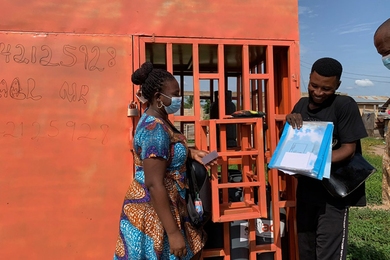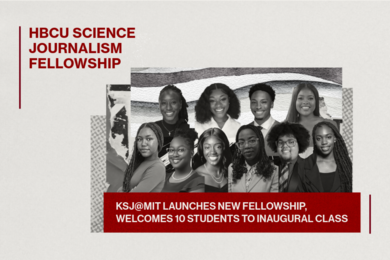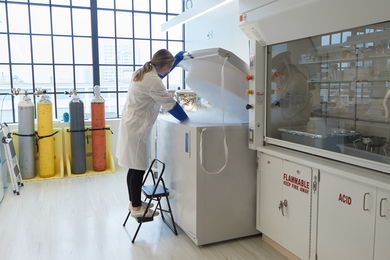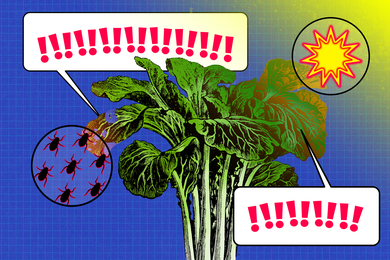Twenty freshmen will spend this summer working under the tutelage of alumni/ae mentors in business and industry who understand just how tough that first year at MIT can be.
"I've noticed in my several decades at the Institute that the happiest undergraduates are those who had an internship after their freshman year. They're happy because they get to see that their MIT education has real value beyond our walls. They also get to work with others who may not be as gifted as the average MIT student, so they see how well they stack up to others in the workplace," said Professor of Archaeology Arthur Steinberg, who will be director of the new Freshman/Alumni Summer Internship Program (FASIP).
"This is particularly important because, statistically speaking, half of the entering freshmen must fall at or below class average at MIT. This sudden difference in ranking -- from valedictorian to bottom half of the class -- is difficult for even the most emotionally balanced students to endure. By working on a rewarding internship assignment, their self-esteem will be restored," he said.
The program, which was initiated by Provost Joel Moses, will focus on placing freshman in businesses owned or operated by alumni/ae in the Boston and San Francisco Bay areas in its first summer. Later, FASIP will expand to other areas of the country.
"This is a way to get alumni/ae more involved with MIT. They'll be able to have a direct, positive effect on students," said Professor Steinberg, who is a MacVicar Faculty Fellow and director of the Integrated Studies Program.
"It's also a great recruitment tool for employers, who spend millions of dollars in their recruitment efforts," said Professor Steinberg. He said that Alexander V. D'Arbeloff (SB '49), chairman of the Corporation and head of Teradyne, Inc. in Boston, offered to hire six freshman this summer to inaugurate the program.
IAP Coordinator Marshall Hughes, who will serve as program coordinator of FASIP, said other internship programs on campus are designed for upperclassmen and are usually focused on a particular major.
"This new summer program is not about working in your specific area of concentration. It's about connecting with the real world. It's very important that students develop the skills they need to fit into the workplace. Mentoring is a good way to get them started," said Mr. Hughes, who emphasized that freshman do not need to choose a major before applying to the program.
The interns will receive salaries and be expected to work through most of the summer like other employees. They will also be encouraged to work closely with their alumni/ae mentors and to have contact with other freshman in the program throughout the internship. Recent graduates in the same city where the interns are working may also serve as "contact mentors" to help the students find housing and transportation, said Mr. Hughes.
Professor Steinberg believes that students will receive rewards beyond the ego-boosting. "I hope they'll begin to understand that the MIT ethos of hard work is truly an asset on the job," he said.
He also expects that the informal socialization lessons about teamwork and communication in the workplace will provide invaluable lessons. To augment these, he will assign written and verbal communication exercises to the students.
"I may have them write an ethnography of the company or prepare some type of business communication. They'll be required to make a presentation about their experience when they get back to school, and we may arrange for them to receive course credit for the work as well," Professor Steinberg said.
All freshman are eligible to apply for the program. There will be an informational seminar during IAP, and applications will be due in mid-February. Interested students should contact Mr. Hughes at <devil@ mit.edu> for more information. Alumni/ae who would like to participate in the program can contact Professor Steinberg at <arthurs@ mit.edu>, x3-6956, or Diana Strange of the Alumni/ae Association at <strange@mit.edu>, x3-8215.
A version of this article appeared in MIT Tech Talk on November 12, 1997.
